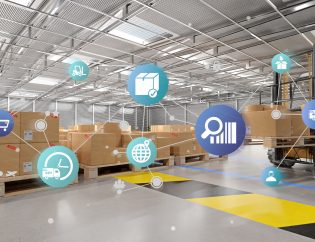The crisis has further emphasized the need to automate supply chains. In the field of supply chain management, automation would be a total game-changer. Automation in supply chain management gives businesses the opportunity to optimize their workflows so that they can maintain a competitive edge.
Automation can be used for many aspects of supply chain management like:
- Inventory management
- Customer service: email confirmation and tracking generation
- Setting and tracking revenue and goals for expansion
- Invoicing and payments
- Distribution across multiple channels
- Bulk actions for high-order volumes
According to Visual Capitalist, 55% of retail, management, and logistics professionals are investing in warehouse automation. And 30% of operational warehouse workers will be supplemented by collaborative robots in 2023, according to Gartner. Automation is expected to reduce costs, increase productivity, and improve overall performance.
Many supply chain experts, however, believe there are some things in supply chain management that shouldn’t be automated. John Sangate, research director for the service robotics market at IDC (International Data Corporation), recently told Supply Chain Dive, “There are aspects of supply chain that shouldn’t be automated. You can leverage technology to support things, but there are still humans required in decision making and in some processes.”
Workers shouldn’t be concerned about being replaced by machines just yet. Human beings are still the best forecasters and managers, and even the most automated facilities will still need human oversight. Humans are still needed for planning and for making decisions. Human resource management and administration are aspects of the supply chain that are not likely to ever be completely automated, for example.
It is likely that automation will simply change the role of humans in supply chain management. Machines will become better tools for supply chain managers. As a recent article from Supply Chain Game Changer stated, “These new technologies will shift the employment landscape and put the squeeze on individuals with transactional or blue-collar skillsets. But supply chain professionals who can up-skill themselves, and become masters of the interpersonal skills that will never go away, will have more opportunities than ever before.” So while automation is likely to shape the future of supply chain management, opportunities for supply chain managers could likely increase.
Are you a supply chain manager? Are you exploring opportunities? Learn more about our recruiters in the area of supply chain management in both Boston and Philadelphia.
